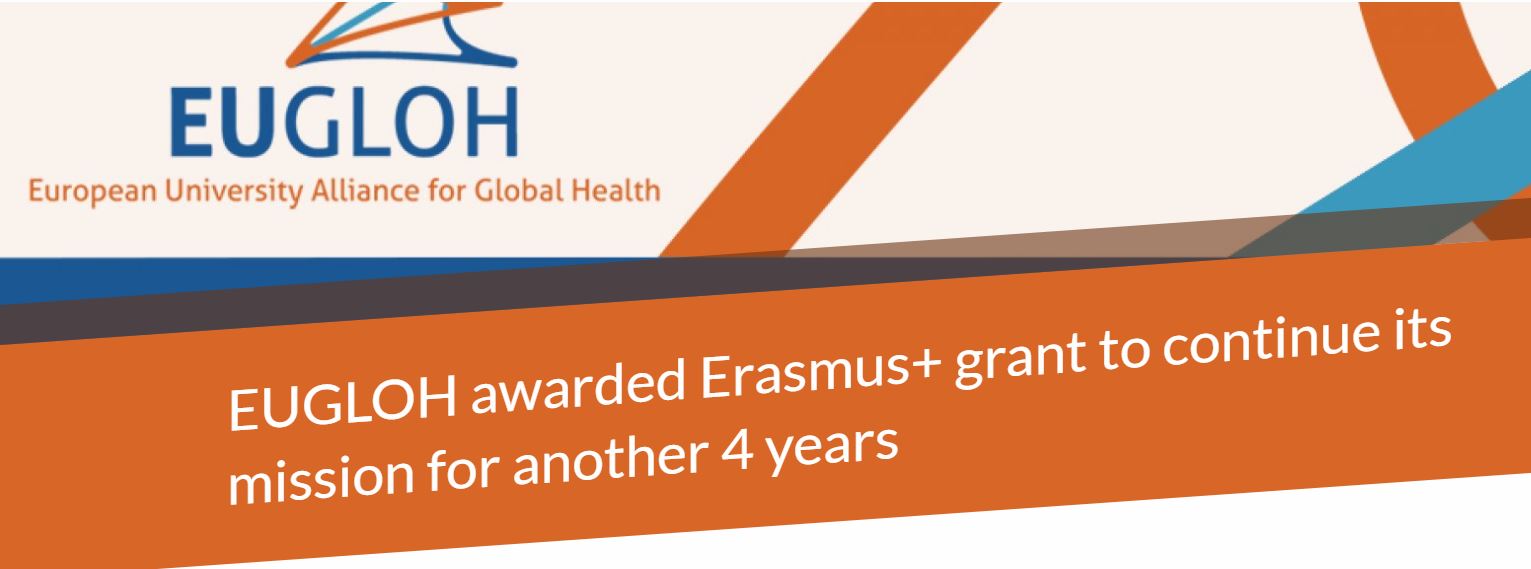Event Calendar 
-
February 12. 08:00 - May 18. 18:00
-
April 29. 00:01 - May 12. 23:59
-
May 2. 09:00 - 4. 18:00
-
May 6. 00:01 - 19. 23:59
-
May 17.09:00 - 16:30

Out of the 52 submitted applications, the EUGLOH Alliance is one of the 16 existing partnerships that received the grant.
The University of Szeged is a founding member of the European University Alliance for Global Health that received the green light to continue its mission and expand its impact for another 4 years. During its next phase – EUGLOH 2.0 – the Alliance will gain 4 new partners to become a consortium of 9 higher education institutions committed to creating an integrated campus with a focus on global health.
In November 2021, the European Commission posted new Erasmus+ grant calls for the total amount of 272 million EUR, which counts as an impressively high grant for shaping the European higher education scene. The aim of the call was to support existing European alliances of higher education institutions to continue their mission and expansion, as well as to establish new alliances with similar aims.
Along with 15 other existing partnerships, the expanding EUGLOH Alliance won the grant and the consent of the European Commission to continue its mission for the next 4 years. The grant will be utilized for the joint programmes and projects of the consortium.
Founding members of the European University Alliance for Global Health (EUGLOH) are Université Paris-Saclay (UPSaclay), Lund University (LU), Ludwig-Maximilians-Universität München (LMU), Universidade do Porto (UPorto) and the University of Szeged (SZTE).
The strategic partnership will be expanded to an alliance of 9 universities with the addition of four new partners: University of Alcalá, University of Hamburg, University of Novi Sad and The Arctic University of Norway. Starting from 2023, the new partners will be able to enjoy the advantages and opportunities offered by the EUGLOH Alliance.
"Through the Alliance, students and staff are given a greater opportunity to collaborate across universities. The primary goal is the coordination of the interdisciplinary activities, especially on the widened education and research areas related to global health – healthy environment, nutrition, healthcare and pharmacology, well-being, etc. The partner universities get new opportunities for joint projects and the usage of scientific infrastructure on the field of biomedicine, life and social sciences, in addition to taking up new challenges in the field of traditional healthcare and well-being." – Said Prof. Dr. Márta Széll, Vice Rector for Strategic Planning at SZTE.
In addition to the academic and research staff of the universities, the students are also ’winners’ of the grant. During the current admission period, more than 6000 students have been admitted to SZTE.